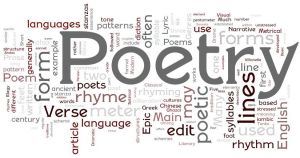Poetry is often a daunting subject for many prospective GCSE students. Often the idea that there are multiple interpretations of a text can confuse those who are approaching a certain cluster of poems for the first time. If you are beginning to study, or are revising the popular conflict cluster of poems in the AQA Anthology Moon on the Tides, then this is a guide to help you focus on the kind of thoughts and questions that will apply to many of the poems in this cluster.
DIFFERENT TYPES OF CONFLICT
Firstly, what you should be aware of is that ‘conflict’ can be interpreted in many ways. The collection of poems in this cluster showcase the many types of conflict a person can encounter. So it is important to keep an open mind when trying to understand what types of conflict the poem might be addressing; not just simply ‘war’.
Different types of conflict you may encounter are: terrorism, civil war, political differences, occupations, tension between ethnic groups or personal struggles (either mental or physical) with an idea, person or even their conscience.
Some poems focus on a narrow point of view, possible the inner thoughts of a persona or they could shed light on the aftermath of conflict and its consequences.
CONSIDER THE FOLLOWING FOR THE POEMS
When studying the poems in this cluster, try to get into the habit of asking yourself these questions to help you ‘unlock’ the main ideas it is trying to convey:
- What kind of conflict does this poem FOCUS on?
Is it set during a conflict or is it the aftermath of the conflict? Who does the conflict AFFECT? Does it feature on a certain war? If so, what is it trying to highlight? - From what PERSPECTIVE is it written?
This could be first (I), second (you) or third person (they). Is there a persona (written from a character’s point of view)? If so are they a participant, observer or a victim? How does this affect the reader? What time is it set in? Past, present or future? Has this been done for a reason? - How does the poem EXPLORE CONFLICT?
What does the poem tell/ suggest about conflict? How does the poet do this with his language choices, structural features (layout/ organisation of text and ideas)? - WHY has the poet written this poem?
What is the overall attitude/ feelings of the poet/ persona? What is the mood of the piece? How could the atmosphere reflect this? - How has the poet COMMUNICATED their ideas?
Look at language choice, literary devices and their placement in the poem – could these help to communicate the poets central ideas?
